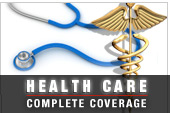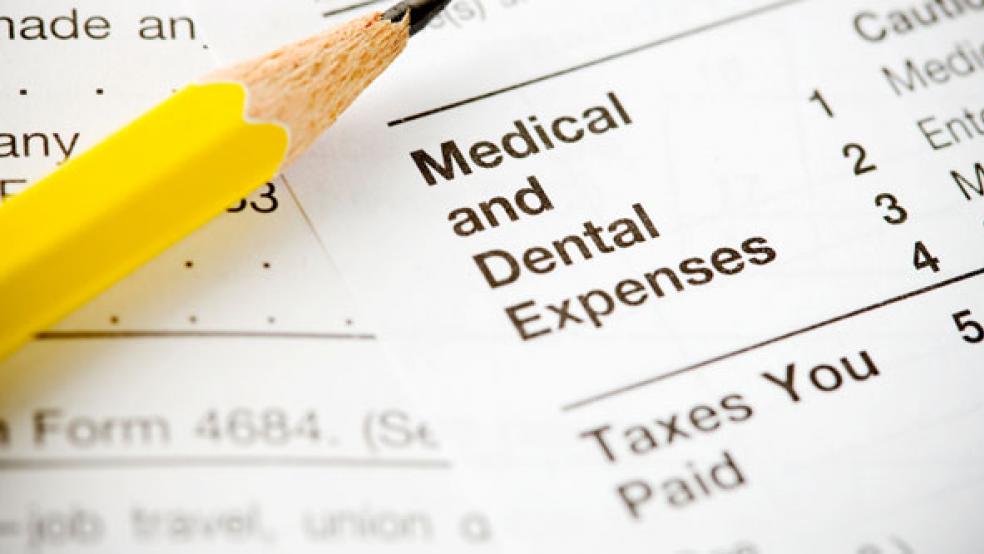The financial consequences to small businesses, investors and consumers are now top of mind following today’s Supreme Court ruling that left intact almost all of the Affordable Care Act, otherwise known as Obamacare.
Attorney Mike Carvin, who argued against the ACA before the high court, told Fox News that as a result of the decision, “Obamacare will go into effect absent a political solution and will impose enormous costs on small businesses. It will lead them to do one of two things: Either never get over 50 employees, which means they might have to fire some people; or get over 50 employees and pay onerous health insurance; or, they may just drop health insurance entirely and pay the penalty.”
“Most people are predicting that health insurance premiums under this act are going to skyrocket, and it might be more economically sensible, rather than paying $12,000, $13,000 a year in medical insurance, to pay a penalty of $2,000 or so and let your poor employees try and fend for themselves,” Carvin added.
How the new law will ultimately affect consumers and the economy is anyone’s guess. But Jo Ivey Boufford, MD, president of the New York Academy of Medicine, told The Fiscal Times on Thursday that “the important message” of the decision is the “health of the American people. We’re seeing the U.S. join the ranks of every other developed country in the world by saying that financial access to health care is a social good.”
Boufford said, “There’s a social commitment to giving people financial access to health care. That is something that we have been lagging in, in a way that has almost been an international embarrassment for a very long time.”
RELATED: Health Care Law Gets Green Light from Supreme Court
The ruling today requires most Americans to buy health insurance by 2014 or face a penalty, which begins at $95 and increases to a maximum of $695 or 2.5 percent of income by 2016.
Nadine Strossen, a Constitutional Law scholar and a professor at New York Law School, notes that “essentially it would cost much more to buy health insurance than to pay the penalty, and the law itself specifically provides that the maximum penalty be based on income and other factors.”

In her view, “Although the court upheld the mandate, they construed it as not as a mandate. The actual term in the law is the ‘minimum coverage requirement.’ The court said, ‘You’re not literally required to buy health insurance. You have a choice – you either get the insurance, or, as an alternative, you pay the extra tax for being an uninsured person. For the typical taxpayer, it would cost much more to buy health insurance than to pay the penalty.”
She adds that “as an incentive to get people to buy insurance, it’s completely ineffective. The rational person would not do it – economically, you’re far better off paying that tax penalty.”
Howard Gleckman of the Tax Policy Center said, “Because the High Court found the penalty for not having coverage is a tax and not a fee, it ruled that Congress has the authority to impose such a levy. In effect, the 5-4 decision written by Chief Justice Roberts concluded that Congress can tax you for failing to acquire insurance.”
The court’s opinion states, “For most Americans, the amount due will be far less than the price of insurance, and by statute, it can never be more.”
So, projecting out to 2016, says Strossen, “Individuals making $35,000 a year are expected to owe the IRS about $50 for any month in which they do not have health insurance. Someone with an annual income of $100,000 would likely owe $200. Contrast that with the price of an insurance policy, and that’s expected to be around $400 per month. There’s absolutely no adverse consequences other than you have to pay this fine. The court’s bottom-line refrain is: ‘The federal government does not have the power to order people to buy health insurance.’”
She says, “There’s a full stop there. But,” she qualifies, “the very next sentence says the federal government does have the power to impose a tax if people do not buy health insurance.”


